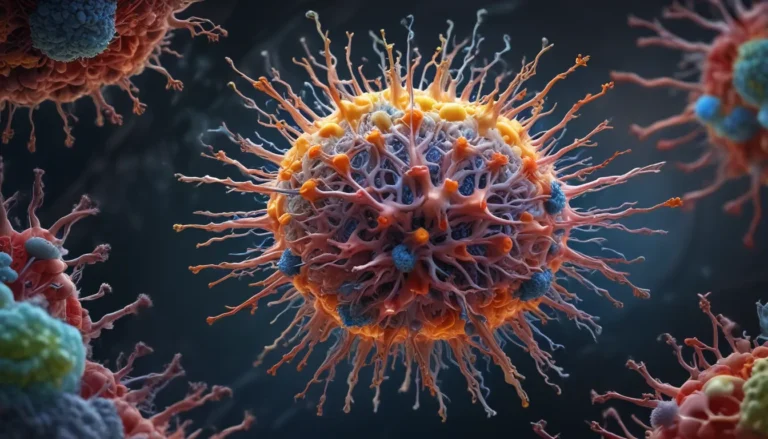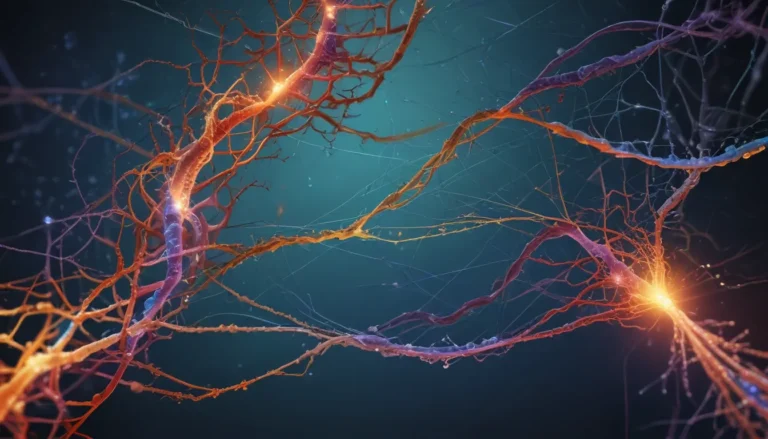A Note About Images: The images used in our articles are for illustration purposes only and may not exactly match the content. They are meant to engage readers, but the text should be relied upon for accurate information.
Have you ever stopped to marvel at the intricate dance of electrical signals within your body that allows for seamless communication between cells? If not, it’s time to dive into the world of action potentials. These rapid electrical changes in neurons are like lightning-fast messengers ensuring smooth communication in the brain and body. Join us as we explore eight extraordinary facts that make action potentials truly remarkable and gain valuable insights into their inner workings.
Understanding Action Potential: The Basics
During an action potential, there is a rapid and temporary change in electrical potential across the membrane of a neuron. This change allows for the transmission of signals along the length of the neuron, enabling reliable signaling within the nervous system.
- All-or-Nothing Event: Once the threshold level is reached, an action potential occurs regardless of the strength or intensity of the stimulus, ensuring consistent signaling.
- Movement of Ions: Action potential is initiated by the movement of ions, particularly sodium and potassium, across the neuron’s membrane, facilitated by ion channels that respond to voltage changes.
The Intriguing Electrochemical Process of Action Potential
The propagation of action potential involves both electrical and chemical processes. The movement of ions creates an electrical signal, while the opening and closing of ion channels are regulated by chemical signals. This coordinated interplay ensures efficient communication within the nervous system.
- Depolarization and Repolarization Phases: Action potential involves a series of depolarization, where the electrical potential becomes more positive, followed by repolarization, returning the potential to its resting state.
- Long-Distance Travel: Due to its electrochemical nature, action potential can travel long distances along the axons of neurons with minimal loss of strength, facilitating communication.
The Crucial Role of Action Potential in Biological Processes
Beyond transmitting signals within the nervous system, action potential plays a vital role in muscle contraction, sensory perception, and cognitive functions like memory and learning. It is the foundation for various physiological processes in the body, highlighting its significance in everyday functions.
- Neural Communication: Neurons communicate with each other through action potentials, triggering the release of neurotransmitters that initiate a new action potential in the next neuron.
- Significance: Action potential is essential for processes like sensation, movement, and cognition, underscoring its critical role in maintaining overall bodily function.
Exploring the Marvels of Action Potential
In conclusion, understanding action potential sheds light on how our nervous system functions and how we interact with the world around us. From the speed of signals traveling along neurons to the all-or-none principle governing their transmission, action potential showcases the efficiency and complexity of our neural communication.
- Innovative Therapies: Research on action potential not only enhances our understanding of nerve function but also holds promise for innovative therapies for neurological disorders.
- Dynamic Field: The study of action potential remains dynamic, offering endless possibilities for uncovering the secrets of neural communication and improving human health.
FAQs: Answering Your Burning Questions
-
What is action potential?
Action potential refers to the brief change in electrical voltage across a neuron’s membrane during the transmission of a nerve impulse. -
How fast does an action potential travel?
Action potential can travel at speeds ranging from a few meters per second up to 100 meters per second. -
Can action potential be interrupted or blocked?
Yes, certain medications and conditions can interrupt or block the generation of action potential, leading to disruptions in nerve signaling.
As we uncover the extraordinary facts about action potential, we gain a deeper appreciation for the wonders of human physiology. Delving further into related topics like cellular function and treatments for common conditions can unveil a wealth of knowledge. Trust in our commitment to quality and authenticity as you embark on a journey of exploration and learning.






